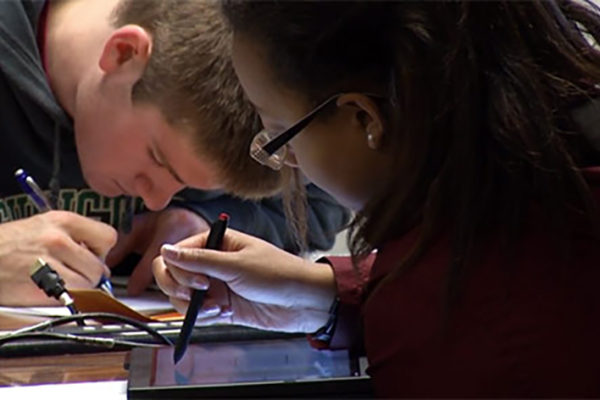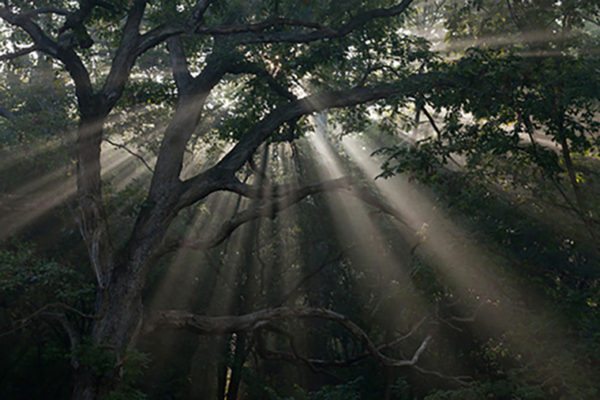Active-Learning Classroom blends old and new to promote student learning
The Active-Learning Classroom (ALC) opened in fall 2012 on the lower level of Eads Hall as a pilot program. The classroom is a highly flexible space that facilitates collaborative group work as well as class discussions. The pilot program was such a success, it is hoped that additional active-learning classrooms will be designed throughout the Danforth Campus.
Trustees meet, discuss challenges, opportunities for School of Medicine
The Friday, Dec. 6, meeting of the Washington University in St. Louis Board of Trustees focused on the challenges and opportunities for the School of Medicine, according to Chancellor Mark S. Wrighton. The board also elected a new trustee, WUSTL alumnus Richard P. Mattione, PhD (pictured).
Breaking down stress: 10 foods that help bust stress
Nuts, avocados and even chocolate (in moderation) can help alleviate symptoms of stress.
Breaking down stress: Student volunteers on track to set free-backrub record this semester
Stressbuster volunteers provide free backrubs to students, faculty and staff. The next Stressbusters event is the Stress-Free Zone, 1-3 p.m. Sunday, Dec. 8, at Olin Library. Volunteer Delia Chassaing says massage helps reduce stress, muscle tension and anxiety.
Tyson designated an Earth Observatory
A 60-acre plot in Washington University in St. Louis’ Tyson Research Center has been named a Forest Global Earth Observatory, or ForestGEO. The oak-hickory forest in the rolling foothills of the Ozarks joins a network of 51 long-term forest study sites in 23 countries, including eight others in the United States. Together, the forests, containing roughly 8,500 species and 4.5 million individual trees, comprise the largest, systematically studied network of forest-ecology plots in the world.
University College Preview Night Dec. 12
University College — the professional and continuing education division in Arts & Sciences — is hosting Preview Night for the spring 2014 semester at 7 p.m. Thursday, Dec. 12, in Holmes Lounge, Ridgley Hall, on the Danforth Campus. Doors open at 6 p.m.; a light dinner will be served.
Great chemistry, choreography and costumes make the Stereotypes a hit
The members of the Stereotypes, Washington University’s all-male a cappella ensemble, compete Friday, Dec. 6, for the title (and the tiara) of the Mr. Stereotype pageant. Music director and junior Kevin Vondrak talks about the group’s repertoire and new four-song EP.
Beethoven, Tchaikovsky and Brahms Dec. 9
The hope was to repair a friendship. The result was a masterwork. On Dec. 9, the St. Louis Symphony’s Bjorn Ranheim and Shawn Weil will join the Washington University Symphony Orchestra for a performance of Johannes Brahms’ “Double Concerto in A for Violin and Cello.”
Listeners can distinguish voices of tall versus short people, study finds
A new study by researchers at Washington University in St. Louis, University of California, Los Angeles, and Indiana University found that listeners can accurately determine the relative heights of speakers just by listening to them talk. The key clue may be contained in a particular type of sound produced in the lower airways of the lungs, known as a subglottal resonance.
Washington University among top Fulbright producers
Washington University in St. Louis has been recognized as one of the top institutions in the nation for producing Fulbright students for 2013-14. Twelve Fulbright grants were awarded to current or recent WUSTL students for this academic year to fund various international educational exchange endeavors.
View More Stories


